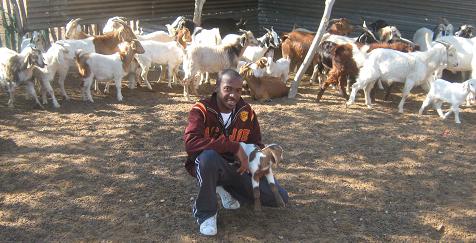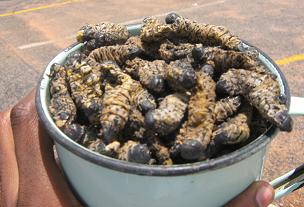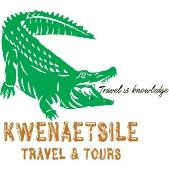Botswana Safari > Botswana Culture
Botswana Culture
Learn more about Botswana People (Batswana) , Botswana food, the Language, music...and more below..
 that's me at my parents cattle post (moraka in Setswana)
that's me at my parents cattle post (moraka in Setswana)Is Botswana Culture complex and difficult to understand? Yes and no. Let me explain...
If this is your first visit it might take you some time to understand Batswana (singular is Motswana). But if you get a few crucial culture pointers before your visit, you wont have any problem relating to the locals.
...And this is what this page is all about...understanding the culture of Botswana.
Since culture is a broad and diverse subject, i am going share with you only those parts of Botswana culture that i feel you need to know and understand...
These include:
- Etiquette
- People and tribes
- language
- Food
- Lifestyle
- Music
Lets begin...
Etiquette - A concept called "Botho" in Botswana
Botho is Botswana's fifth National Principle and it defines a process of earning respect by first giving it, and to gain empowerment by empowering others.
Botho includes positive attributes expected of a human being such as respect,good manners,compassion,helpfulness,politeness and humility.
This principle plays an important role in the way Batswana interact in society.
Below are a few examples of Botho that will be highly appreciated by the locals ...
- Taking your hat or cap off when speaking to an elder - sign of respect
- When an elder is in need of seat and none are vacant, it is botho to offer the elder your seat...
- When entering a house or any building (especially government buildings) taking your hat or cap off (men) is a sign of Botho..
- Greeting before beginning a conversation or asking for
something/help...is a sign of politeness
Here is how to greet in Setswana... - Hello is " Dumelang "
- Hello Sir is " Dumelang Rra "
- Hello Gentlemen is " Dumelang Borra "
- Hello Madam is " Dumelang Mma "
- Hello Ladies is " Dumelang Bomma "
You can think of the above as "ice breakers" in any conversation whether you intend to converse in either English or Setswana...
Botswana People
Botswana is made up of different tribes . Each tribe has adopted a "not so evident culture" of its own.
However ,overall cultures are very similar from tribe to tribe. This is because even though we may be from different tribes, we still consider ourselves Batswana and the Botswana culture is what has molded our own individual tribal cultures...
Botswana Language
Setswana is the most spoken native language. However almost every tribe has its own language that is sometimes very similar to Setswana.
English is spoken and understood by many people the majority of them living in the urban settlements.
Ethnicity of the People of Botswana
At first glance Botswana people may seem like people of the same culture, belief and ethnicity, however if you spend enough time in Botswana you will begin to realize that this is only partially correct.
Why? ...We are all Batswana (people of Botswana), however...we also originate from many different sub Botswana tribes.
Each tribe has a special culture of its own that has been adopted many decades/centuries ago. Each tribal culture plays an important role in the overall Botswana culture as it contributes something special to the culture of Batswana.
This may not be evident to you when you visit because even though we may be divided into different tribes , we all get along well , speak the same language, have adopted the same beliefs and we all consider ourselves as Batswana.
With that said, check out the different ethnic tribes in Botswana below.
Botswana Ethinic Groups
- Basarwa - Believed to be the first inhabitants of Botswana.
- Kalanga - This my tribe, :-).
- Bakwena
- Bamangwato
- Batlokwa
- Bakgatla
- Barolong
- Bamalete
- Batawana
- Bangwaketsi
- Bayei
- Bakgalagadi
- Basubiya
- Baherero
- Bambukushu
- Batswapong
The above are indigenous ethnic groups, however it is important to keep in mind that among the people of Botswana are also Indian as well as white Batswana.
Just like the above indigenous groups, the white and indian Botswana people are also citizens of Botswana.
In fact, i have a lot of Indian Batswana friends who speak fluent Setswana!
You may be wondering how this is possible...right? Their parents, grandparents or great grandparents settled in Botswana many years ago. And over the years gained citizenship.
So they were born and raised as citizens of Botswana.
Botswana Food
The food in Botswana is very diverse. From fast food restaurants to ones that specialize in Italian, Indian and local cuisine...we have them all.
Among the locals, home cooked traditional food seems to be the favorite.
Step into any Botswana home and i bet that they will be having our old time favorite dish of "bogobe, nama and morogo"....at least twice a week!
The bogobe is made from sorghum or maize, nama is meat (could be goat,cow,lamb or wild animal meat) and morogo is a green leafy veggie that looks like spinach...
Now this dish and others have been served for centuries in Botswana and are still being served today as they were by our ancestors...
Next time while on your safari in Botswana, ask the chef for the "paleche / bogobe, nama and morogo dish..." , you wont regret it ..., trust me on this one ; )
 A cup of dry mophane worms, a tasty source of protein
A cup of dry mophane worms, a tasty source of proteinLifestyle of Botswana People
Your typical Botswana family has 3 homes and lifestyles...
1.The first is the modern home in the large towns or cities...
This is where they work , kids go to school and where the families spend most of their time.
2.The second is the Home village , referred to as "ko Gae" in Setswana...
Usually this is where they were raised or where their parents or grandparents were born and raised...
Activities at the home village include rearing of goats and subsistence farming where crops like maize,sweet reed and sorghum are grown as well as ground nuts ,sweet potato, water melon and others...
The crops are grown in the rainy season when water is abundant enough to support the farming.
Most Batswana visit the home village over the Christmas holidays. This is usually the time when people are off work for a few days and families get together...
3.The Cattle post (Known as Moraka in setswana)
This is where cattle and sometimes goats and sheep are reared. Almost every family in Botswana has a cattle post...
This is because cattle are not only a symbol of wealth , but also a source of livelihood for Batswana.
They are the main source of meat during celebrations as well as funerals...and are usually sold to the Botswana Meat Commission (BMC) to source money...
Activities at the cattle post usually include hunting, cattle branding and vaccinating. People,(often men and boys) visit the cattle post on weekends and public holidays...
For locals the cattle post is the main getaway place for fresh air away from all the busy and fast life in town.
Botswana Culture activities to look out for while on Safari
- Traditional Dancing
- Story Telling
- Local Village Visits
- Guided Bushman hunting tours and...
- Bushman food gathering excursions
There are some attractions that exhibit ancient Botswana culture that are worth visiting....Some of these date as far back as 650 AD!
Among them are the...
- Tsodilo Hills
- Domboshaba Ruins
- Tswapong Hills
- Motloutse Ruins
- Gcwihaba Caverns
- Matsieng footprints
- Kubu Island
Botswana Culture Exhibitions at Museums...
Museums are also rich in Botswana culture education. Below are my favorite museums...
- The Khama III Memorial Museum in Serowe
- National Museum and Art Gallery in Gaborone
- The Supa Ngwao Museum in Francistown
- Nhabe Museum in Maun
